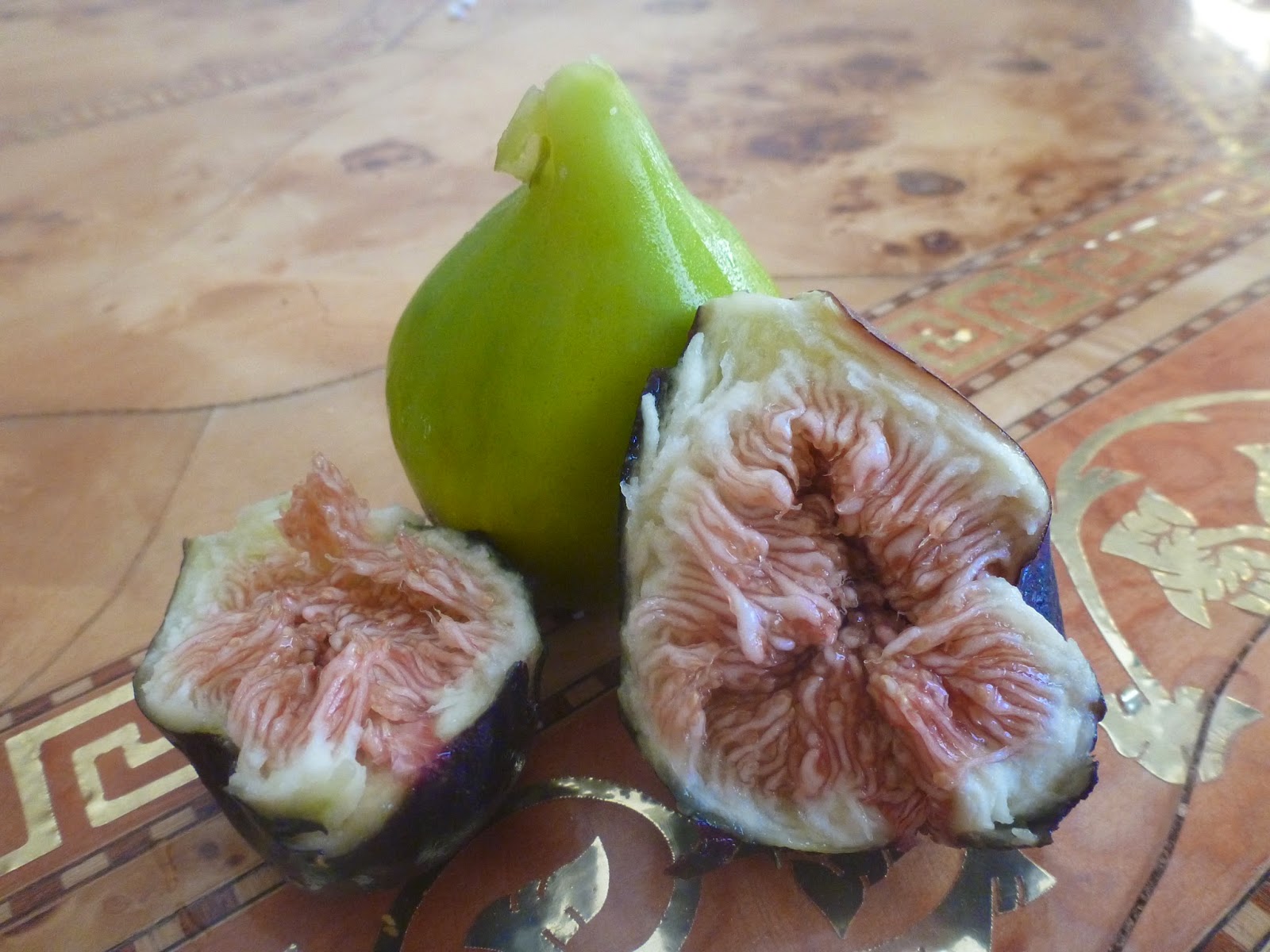The seasonality of fruit is evident here in a way it is not
in American supermarkets, where apples, oranges, pineapples, and strawberries
are available year-round, albeit in mediocre quality.
When I first arrived in Morocco, in February, strawberries
were everywhere, spilling out of market stands and piled in wheelbarrows for
less than 50¢ a pound. Oranges, too, abounded, brilliant golden orbs shining in
the bright mid-day sun of the main market street. For weeks, we ate pounds of
strawberries and drank quarts of fresh squeezed orange juice.
In mid-March, two strange new fruits appeared: cactus fruits, with shockingly deep red but disappointingly bland flesh, were sold in carts in the central square for just a few weeks.
Another kind, similar in appearance and taste to apricots, arrived around the same time and lingered for a few months before it, too, faded from the market place.
Then one week in mid-April, the strawberries were gone. You could still find small, slightly
squished berries lying sadly in the bottom of cabbage-leaf lined wooden crates,
but the mountains of ruby-red fruit? No more. Luckily for us, their disappearance coincided with the
arrival of melons.
Small, candy-sweet, pale green ones; bright
yellow football-shaped ones, and watermelons, which seem to be sold almost
entirely out of the back of trucks in the street like counterfeit purses. There’s
always one cut open for display, with a knife stuck rather menacingly in the
center.
Melons continued to proliferate as the stone fruits arrived in
May – first quarter-sized apricots, then golf-ball sized plums, then peaches,
cherries, and nectarines.
And then, one glorious day last week, I saw a flash of
unfamiliar color on a table in the street. Could it be?! I crossed the street,
seeing nothing but the lime green teardrops piled in a pyramid on the cart. It
was!! Fresh figs had arrived. The vendor saw me gazing longingly on and picked
one up, splitting it open to reveal the glistening pink interior before handing
it to me. I closed my eyes as my teeth ripped through the delicate flesh and
the juice coated my lips. It is impossible to describe the flavor of a
perfectly ripe fig – sweet, floral, and fruity, perfectly balanced, with some
mysterious ambrosial quality lacking in even the most delicious examples of
every other fruit I have tasted.
My hands were sticky as I handed him ten dirhams – a little
over a dollar. His fingers seemed to flicker as they moved over the pile of
figs, testing each one for ripeness before placing them in a bag. I brought
home a kilo and immediately ate half, finishing the rest for breakfast the next
morning. That night, we went in search of more. It was midnight and most of the
stands were closed, but we found one just inside the walls of the old city,
this time for less than a dollar. As soon as we turned back to the street, I
pulled the bag open, gleefully tasting our purchase. We walked through the warm
Tangier night, sighing with delight as we devoured the softest, ripest figs. We
held the bag open each time we ran into a friend, laughing and talking and
sharing the simple pleasure of fresh fruit eaten at the peak of ripeness.











































